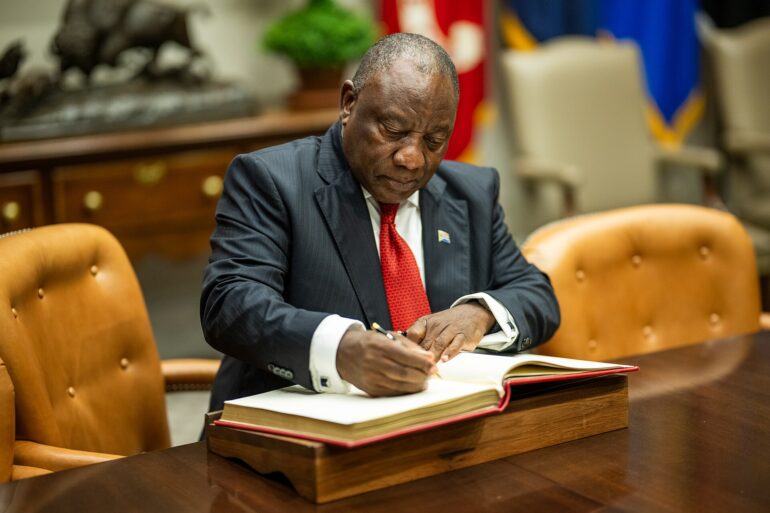South African President Cyril Ramaphosa has now reportedly firmly rejected external calls to arrest individuals chanting “Kill the Boer! Kill the farmer!” during political rallies, emphasizing that such decisions are rooted in the nation’s sovereignty and constitutional protections for freedom of expression.
His remarks come amid rising tensions surrounding the safety of white farmers in South Africa.
In a recent statement, Ramaphosa asserted, “When it comes to the issues of arresting anyone, it’s a sovereign issue. We do not need to be instructed by anyone.”
His comments follow a significant exchange with President Donald Trump, who confronted Ramaphosa at the White House regarding violence against white South African farmers.
Trump highlighted the disproportionate targeting of white farmers, referencing alarming statistics related to farm attacks and murders.
The chants, popularized by Julius Malema, leader of the Economic Freedom Fighters (EFF), have sparked widespread controversy. Malema and his party have faced criticism for their inflammatory rhetoric, with some viewing it as incitement to violence.
In 2010, a South African court ruled that the chants constituted hate speech; however, a 2022 ruling reversed this decision, stating that such expressions are protected under the banner of freedom of speech.
During a rally in March, Malema led crowds in chanting the controversial slogans, asserting that they are a historical part of the struggle for liberation.
“The struggle heroes composed this song. Therefore, I will never stop singing it,” he proclaimed, framing the chants as a defense of the legacy of the anti-apartheid movement.
Ramaphosa’s defense of the chants hinges on the constitutional court’s determination that they serve as a “liberation chant” rather than a call to violence.
“We are a very proud, sovereign country that has its own laws and processes,” he stated, underscoring the importance of adhering to constitutional principles in the face of pressure from external entities.
The issue has become increasingly contentious, particularly as tensions rise around land reform and economic inequality in South Africa.
In January, Ramaphosa signed the Expropriation Act, allowing the government to seize land for public purposes, a move that has drawn both support and criticism.
As discussions surrounding race, land ownership, and violence continue to evolve in South Africa, Ramaphosa’s insistence on national sovereignty and constitutional rights highlights the complexities of addressing historical grievances while navigating contemporary political pressures.
The debate over the safety of farmers and the rhetoric surrounding land reform remains a sensitive and polarizing topic in the nation’s ongoing journey toward reconciliation.
[READ MORE: Former Democrat Congressman Charlie Rangel Dead]





